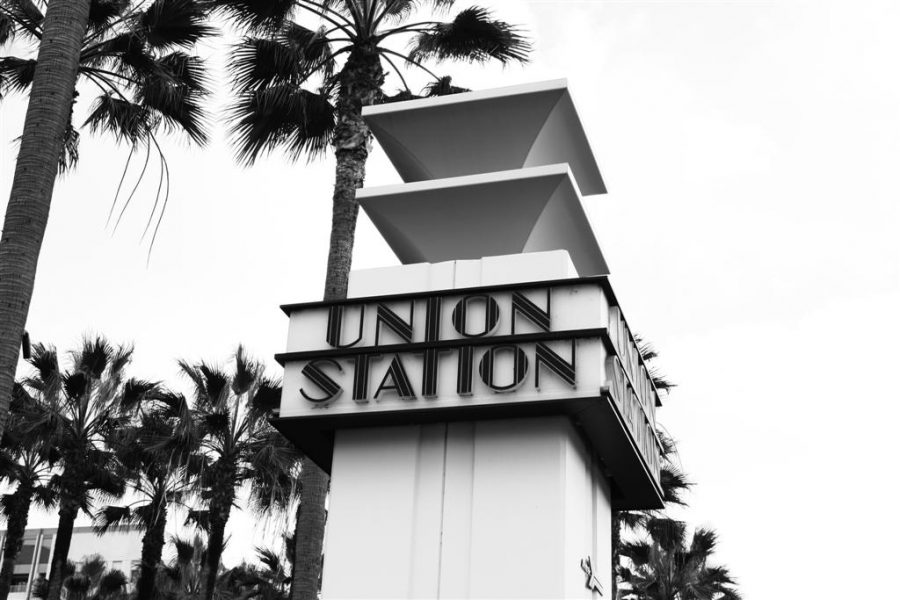Long-Awaited 2021 Oscars Leave Much to be Desired
A view of the Union Station sign in Los Angeles where the Oscars were held this year. (Courtesy Wikipedia)
April 28, 2021
The 2021 Academy Awards left viewers with much to talk about. The first in-person awards show of the season strayed from Oscar norms in many ways, but, for better or for worse, still managed to continue some of their long-standing traditions.
The Event
This year, the Oscars were held at Union Station in Los Angeles. This decision proved to be problematic in many ways for both in-person attendees and the surrounding community, including disrupting transportation at Union Station, displacing residents of a homeless encampment and forcing a COVID-19 testing site to relocate. Residents of apartments surrounding Union Station and essential workers in the area were frustrated by the disruptions.
Disability access was also abysmal, and getting into the venue proved difficult for many. The show itself further proved its disregard for disability when it cut away from Marlee Matlin as she signed her acceptance speech alongside an American Sign Language interpreter. They also did not provide captioning or ASL interpreting at any other point in the program.
Another decision that was hard to swallow was the Academy’s direction to participants not to wear masks while they were on camera. While attendees underwent rigorous COVID-19 testing and temperature checks prior to the event, it still made viewers uneasy to see a group of more than 170 people rubbing elbows unmasked.
The Awards
The ceremony differed from years past in numerous ways. Among many experimental choices, this year there was no host, no musical numbers and no limit on the length of acceptance speeches. Another surprising element of the show was the order of the awards. Normally, the best is saved for last — the award for Best Picture is typically given at the end of the night as a grand finale. This year, the final categories awarded were Best Actress and Best Actor. With the late Chadwick Boseman being a strong contender for Best Actor, many believed the night would end with an emotional tribute to him, and a posthumous award. It didn’t.
Anthony Hopkins took home Best Actor for his role in “The Father” and Frances McDormand took home Best Actress for “Nomadland” which was also awarded Best Picture and earned Chloé Zhao an Oscar for directing. Zhao is the first Asian woman to win Best Director and the second woman ever to receive that award. Born in Beijing, her triumph at the Oscars was censored on social media sites in China because of her negative views on the Chinese government.
Daniel Kaluuya received an Oscar for his supporting role in “Judas and the Black Messiah” and Yuh-Jung Youn was awarded for her supporting role in “Minari” becoming the first Asian woman to win this award since 1957. So, while there were definitely some wins for diversity at the Oscars this year, there were, as always, some major snubs. Most were surprised by the upset of Anthony Hopkins winning Best Actor over Chadwick Boseman, but also by Viola Davis being passed by for yet another well-deserved Best Actress award for her performance in “Ma Rainey’s Black Bottom.”
The show ran well over three hours and, while it did little to impress viewers or attendees, it did give the feeling that we’re one step closer to often-described “normalcy” after a difficult year for the film industry and the world at large.








